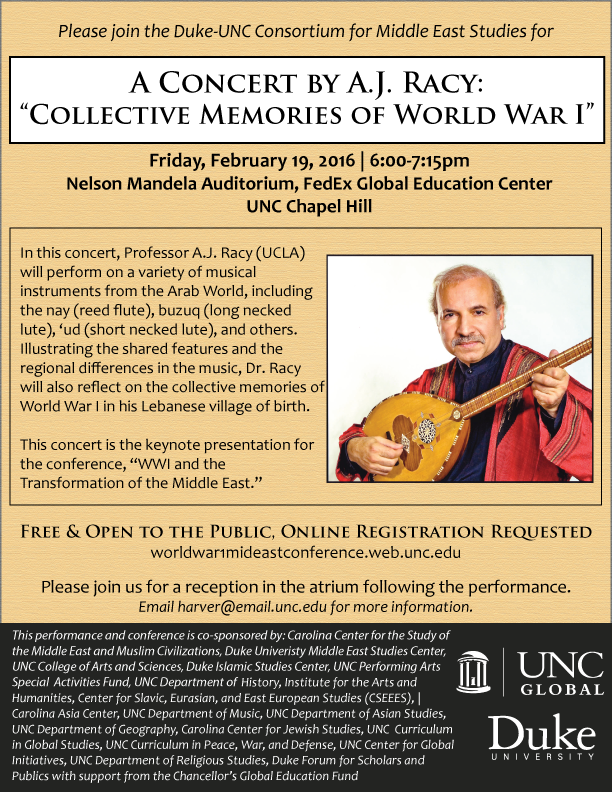Home
The Duke-UNC Consortium for Middle East Studies presents:
World War I and the Transformation
of the Middle East
February 19-20, 2016, at the FedEx Global Education Center
on the Campus of the University of North Carolina at Chapel Hill
CLICK HERE TO REGISTER
***K-12 teachers, instead of using the link above, please use the registration link on the K-12 Outreach Tab to register.
The aftermath of World War I transformed the Middle East. The Ottoman Empire, with its rich linguistic, religious and ethnic variety, was divided into a collection of small states, each with its own ruling group under the control of European powers. New borders dislocated long-established trading networks, separated family and tribal collectives, and required the creation of new “national” consciousness. These new economic, social, and political realities continue to influence the region to the present day.
This short conference will explore the consequences of World War I in the region, focusing on the creation of this new state system and the new exclusionary identities that were required to turn Ottomans into Syrians, Iraqis, Jordanians, and Turks. New states created new refugees, new nationalities defined new minorities, and new codes of law demanded new rights. Thus, the aftermath of the war was not only political, but also deeply personal, and it is on the collective personal repercussions of World War I that we will focus.
Postwar borders and states are being contested today more than at any time over the past century, as groups like al-Qaeda seek to redefine membership and ISIS/Daesh works to reconfigure the regional map. This conference brings much-needed historical context to today’s struggles over belonging, identities, and the map of the Middle East.
This conference is free and open to the public. Please register at the link below by February 15.
There will be a pre-conference panel at Duke University on Friday, February 19 from 12-2pm titled, “Rethinking Ottoman Modernity: Culture, Politics and Religion” featuring visiting and local scholars. For more information about this event, please click here.
*The Duke-UNC Consortium for Middle East Studies is comprised of the Carolina Center for the Study of the Middle East and Muslim Civilizations and the Duke University Middle East Studies Center. To learn more about the Consortium and its activities, please click here.
_




